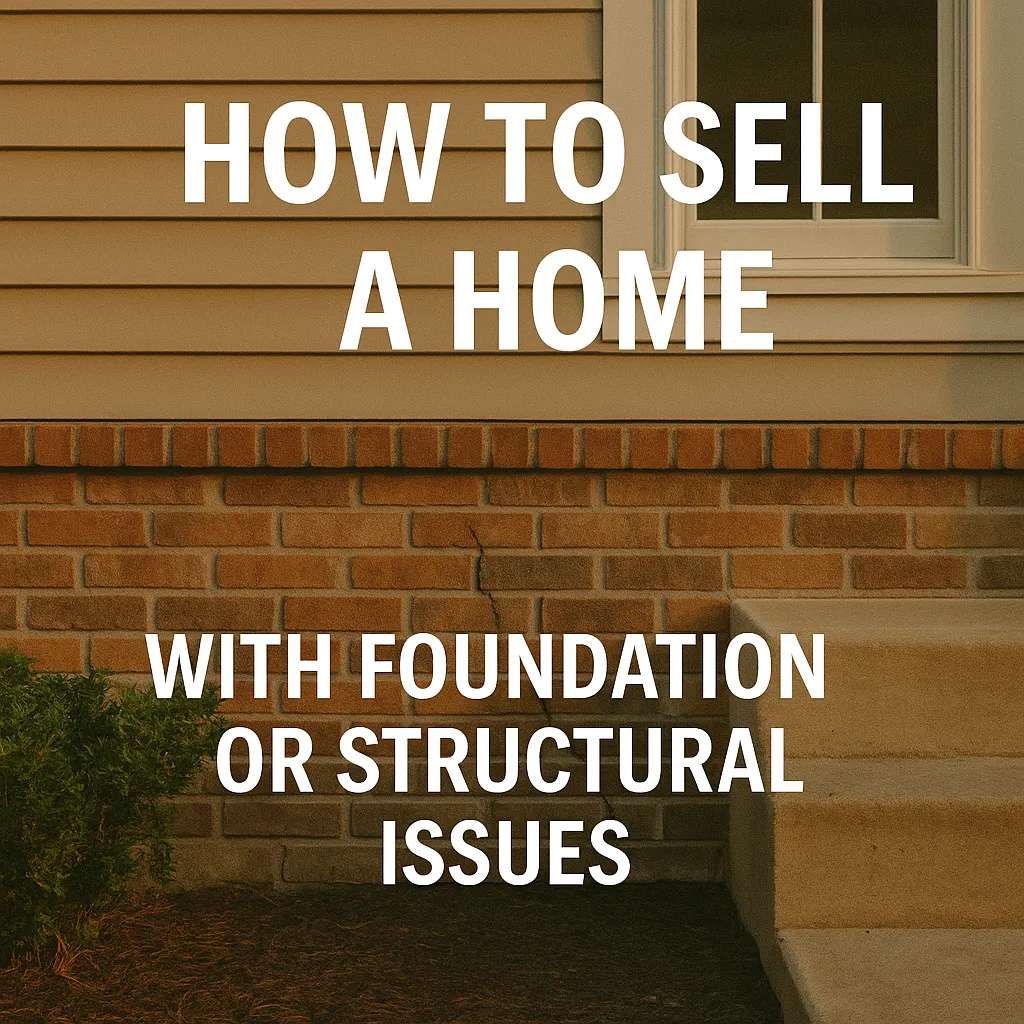
How to Sell a Home With Foundation or Structural Issues
🏚️ How to Sell a Home With Foundation or Structural Issues (Without Losing Value)
If you’re preparing to sell your home and recently discovered cracks in the walls, uneven floors, or sticking doors, you might be worried that foundation or structural problems could derail your sale.
Don’t panic.
You can sell a home with foundation or structural issues—and often still get fair market value—if you handle it strategically. At Hanson Capital Homes, we’ve helped many Chattanooga Valley sellers navigate this exact challenge with honesty, planning, and the right marketing approach.
Here’s how to do it the smart way in 2025.
🧱 Step 1: Get the Facts First
Before listing, get a professional foundation or structural inspection. Guesswork won’t cut it—buyers (and their lenders) will want documentation.
Why This Step Matters:
You’ll know the full scope of the problem.
You’ll avoid surprises later during the buyer’s inspection.
You can decide whether repairs are necessary—or if disclosure is enough.
💡 Pro Tip: A licensed structural engineer’s report can give you leverage and transparency. It’s better to hand buyers a report upfront than have them assume the worst.
🛠️ Step 2: Decide—Repair It or Sell As-Is
There are two main paths forward:
✅ Option 1: Repair Before Listing
If you have the funds and time, repairing foundation issues before listing can pay off.
Increases buyer confidence and widens your pool of offers.
Improves appraisal value.
You can market your home as “fully repaired with warranty.”
📈 Example: Sellers who fix foundation issues with transferable warranties often recover 80–100% of repair costs at closing because buyers see long-term value.
⚠️ Option 2: Sell As-Is (with Disclosure)
If repairs are too costly, selling as-is is completely legal and often practical—especially in high-demand Chattanooga Valley neighborhoods.
You’ll just need to:
Disclose all known issues clearly in writing.
Price accordingly to reflect the repair cost.
Focus your marketing toward investors or cash buyers.
💬 Real Talk: Cash buyers and investors often specialize in properties with structural challenges—they expect it, so transparency earns trust.
💵 Step 3: Price Strategically (Without Undervaluing)
Here’s the key: foundation issues don’t automatically destroy your home’s value.
If your home would normally sell for $350,000 but needs $25,000 in repairs, listing around $325,000–$330,000 could still attract interest and maintain market momentum.
🎯 The trick is to show buyers that your price already reflects the repair—not that you’re desperate to sell.
🧠 Step 4: Use Buyer Psychology to Your Advantage
Buyers fear the unknown more than the problem itself.
By being transparent and prepared, you reduce their fear.
Provide your engineer’s report and any repair estimates upfront.
Offer transferable warranties from reputable repair companies.
Highlight everything else positive about your property—location, upgrades, schools, and yard space.
💬 Psychology tip: Framing matters. Instead of “foundation issue,” say:
“Professional inspection complete, with detailed report and transferable repair warranty available.”
That sounds proactive and reassuring—not problematic.
🏗️ Step 5: Market to the Right Buyers
Some buyers see “structural issues” as a deal-breaker, but others see opportunity.
Here’s who you should target:
Investors: Often pay cash, close quickly, and plan to repair.
Contractors or house flippers: Understand repair costs and value potential.
Owner-occupants using renovation loans (like FHA 203k): These loans let them buy and repair the home with one mortgage.
📍 In Chattanooga Valley, markets like Rossville, Red Bank, and East Ridge attract investors specifically looking for homes that need work—because demand is high and supply is limited.
🧾 Step 6: Full Disclosure = Trust + Protection
Tennessee and Georgia law both require sellers to disclose known material defects, including structural or foundation issues.
Being transparent not only keeps you compliant but also protects you from future legal claims.
💡 Pro Tip: Always keep written proof of what you disclosed (like signed property condition forms and inspection reports).
🧠 Featured Snippet: How to Sell a Home With Foundation Issues
Get a professional inspection and engineer report.
Decide whether to repair or sell as-is.
Price your home to reflect repairs, not panic.
Be transparent—buyers fear surprises, not facts.
Target the right audience (cash buyers, investors, renovators).
🏁 Final Thoughts: Honesty + Strategy = Success
Selling a home with foundation or structural issues may seem daunting, but it’s completely doable—especially in today’s market.
With the right presentation, transparent disclosure, and smart pricing, you can attract the right buyers and preserve your home’s value.
At Hanson Capital Homes, we help sellers navigate these challenges step-by-step—from contractor coordination to pricing strategy—so you can move forward confidently.
🎯 Want expert advice on selling a home with structural issues in Chattanooga Valley? Let’s talk about your options and the best path forward. Click here!
💬 Question for Readers:
Would you rather repair foundation issues before selling, or sell as-is and let the buyer handle it? Share your thoughts in the comments!
